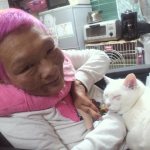This year 2021 marks five years since the “Sagamihara killing of disabled people”

This year 2021 marks five years since the “Sagamihara killing of disabled people” occurred on 26 July 2016, in which people residing at Tsukui Yamayurien in Sagamihara City, Kanagawa Prefecture, were attacked, claiming 19 precious lives and seriously injuring 26 others.
With the growing sense of stagnation in Japan, partly due to the Corona 19 pandemic that began in 2020, there has been no end to hate speech and hate crimes against minorities, including people with disabilities.
On the fifth anniversary of the incident, we must remember the regret of each victim and continue the fight against eugenics to ensure that a similar incident never happens again. We also pledge to work with all members of society to achieve an inclusive society where everyone is respected and not separated by disability.
Here, we, DPI Japan, would like to express our thoughts on the following issues:
1. Kanagawa Prefecture’s review of the case
2. The reality in Japan: abuse of the disabled not decreasing, transition to the community not progressing
3. Japan’s national government needs to improve the infrastructure for the transition to the community
1. Kanagawa Prefecture’s review of the case
After the incident, Kanagawa Prefecture took the opportunity of the revelation of abuse and inappropriate treatment of users by staff at Tsukui Yamayurien to investigate the state of support at six facilities, including Tsukui Yamayurien.
In March 2021, the committee compiled a report. The report points out the lack of understanding of the Law on the Prevention of Abuse of Persons with Disabilities and the lack of awareness among staff, managers and prefectural officials who are in a position to guide and supervise the facilities of the three requirements (urgency, irreplaceability and temporary nature) when physical restraint is unavoidable. The report reveals that abuse and unjustified physical restraint are carried out on a daily basis at this facility, and that the prefectural government’s checking function is not working.
In response to this report, Kanagawa Prefecture established a study committee in June 2021, with the aim of examining the future of support facilities for persons with disabilities from the perspective of persons with disabilities.
This committee will examine ideas such as support facilities for persons with disabilities in prefectures. We will see whether it will make use of the reflections on abuse, including physical restraint, which is said to be one of the backgrounds of the Tsukui Yamayurien incident, and move towards the realization of disability welfare that is truly based on the perspectives of the people concerned.
2. The current state in Japan: abuse of disabled people not decreasing, transition to the community not progressing
In February 2020, it was revealed that nurses at Kande Hospital in Kobe, Hyogo Prefecture, had abused inpatients and that they had the perception that they would be treated coldly by senior staff if they did not abuse patients. It was also revealed that there was a system in the hospital in which nurses had the perception that they would be treated coldly by senior staff if they did not abuse patients, thereby perpetuating the cycle of abuse.
In order to eliminate such abuse, the Law on the Prevention of Abuse of Persons with Disabilities must be amended to include hospitals and schools in the scope of mandatory reporting.
It is also necessary to create an environment where people with disabilities can spend time together from childhood, including by promoting understanding of human rights and rights protection and inclusive education, and providing opportunities to learn about discrimination and human rights.
However, it should also be pointed out that efforts to transition to the community, so that people with and without disabilities can live together in the same community as a matter of course, have been slow and the number of people transitioning to community life has decreased significantly, from 4,836 in 2011 to 1,525 in 2019. In addition, the number of new admissions has remained higher than the number of people moving to community living, from 7803 in 2011 to 5394 in 2019.
3. Japan’s national government needs to improve the infrastructure for the transition to the community
We believe that the Government should take a lesson from the Sagamihara murder case and other cases of abuse of persons with disabilities that have occurred since then in various hospitals and institutions, and make a full-scale effort to promote the transition to the community.
The transition to the community should be planned from two perspectives: the perspective of the hospital or institution, and the perspective of the parents, so that the person can continue to live in the community with social support. To achieve this, it is necessary to conduct a careful survey of intentions and provide information to those in institutions, those on waiting lists and their families, and to establish by law an infrastructure for transition to the community, including empowerment support, decision-making support (including decision support), family support and support for securing housing. We believe that this is the only way to ensure that the incident does not fade away and that an inclusive society can be achieved.
Once again, we express our condolences to the victims of the incident and stand firmly against the eugenic ideology that disabled people should disappear.
More from my site
現在位置:ホーム > 新着情報 > This year 2021 marks five years since the “Sagamihara killing of disabled people”






